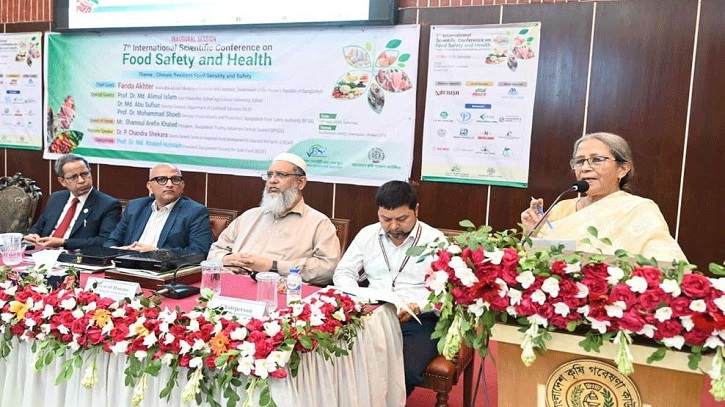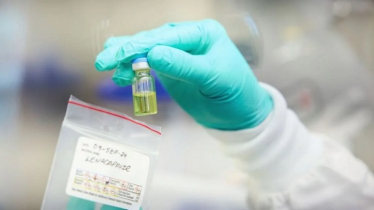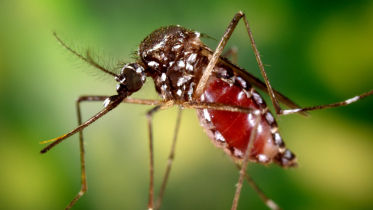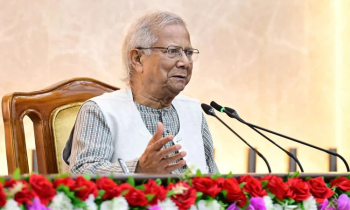
DHAKA – Fisheries and Livestock Advisor Farida Akhter has emphasized the need to eliminate the disparity where unsafe food is available for the poor and safe food for the middle class. She asserted that this inequality cannot be allowed to persist, and ensuring safe food for all people must be a priority.
She made these remarks today, Saturday, while addressing the inaugural session as the chief guest at the 7th International Scientific Conference on Food Safety and Health, held at the Bangladesh Agricultural Research Council (BARC) Auditorium.
The Fisheries and Livestock Advisor pointed out that discussions on food often revolve solely around agriculture, neglecting the significant contributions of fisheries and livestock to food production.
She further stated that in many countries worldwide, the agriculture, fisheries, and livestock sectors are considered together in the context of food security and production. However, in Bangladesh, the importance of the fisheries and livestock sectors is not adequately considered alongside agriculture.
The Advisor highlighted the deep connection between food production and public health, stressing the importance of ensuring food safety. She noted that adhering to proper food processing methods is a crucial aspect of public health.
She observed that conscious consumers are willing to pay more for chemical-free and antibiotic-free fish and meat. However, ordinary or working-class people are often unaware of food safety. She urged the Bangladesh Food Safety Authority to work towards raising awareness among this segment of the population.
The Advisor also noted the detrimental effects of pesticide and herbicide use in agriculture, which not only harm crops but also create difficulties in livestock rearing. Pesticides used in fields contaminate ponds, rivers, and canals, causing extensive damage to fish populations. Alarmingly, pesticides are even being used for fishing, posing a significant threat to safe food.
Furthermore, the Advisor stated that modern agriculture has limited the variety of vegetables available. Many seasonal vegetables that were once common are now scarce. Hybridization is employed to produce these vegetables, often necessitating the use of pesticides, leading to a problematic modern concept of food. Over-reliance on the same types of vegetables or crops year-round leads to monoculture, and the manipulation of food needs to be changed.
The inaugural ceremony was presided over by Professor Dr. Khaled Hossain, President of the Bangladesh Society for Safe Food. Special guests included Professor Dr. Md. Alimul Islam, Vice-Chancellor of Sylhet Agricultural University; Dr. Md. Abu Sufian, Director General of the Department of Livestock Services; and Professor Dr. Mohammad Shoeb, Member of the Bangladesh Food Safety Authority.
Shamsul Arefin Khaled, President of the Bangladesh Poultry Industries Central Council (BPICC), addressed the gathering as a distinguished guest. The keynote paper was presented by Dr. P. Chandra Shekara, Director General of CIRDAP. Academics, scientists, researchers, students, and high-ranking government and non-government officials were present at the event.





